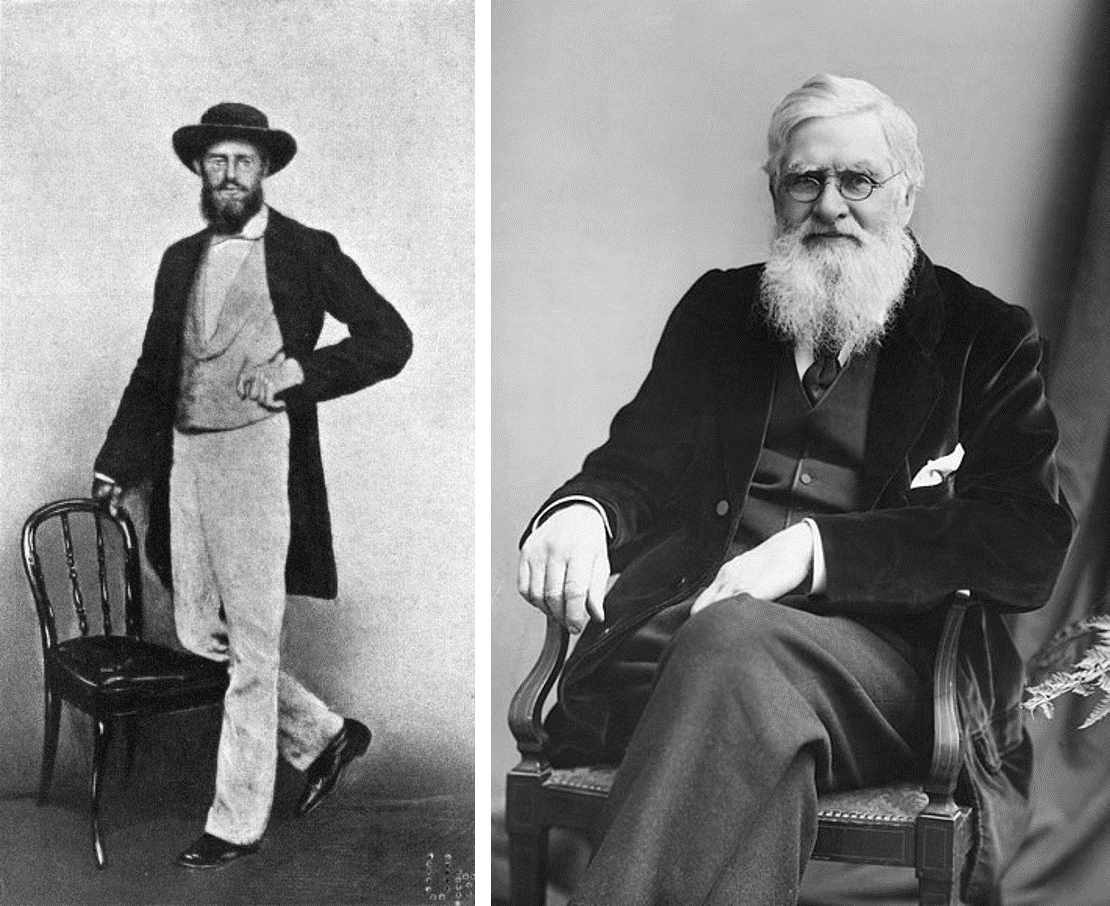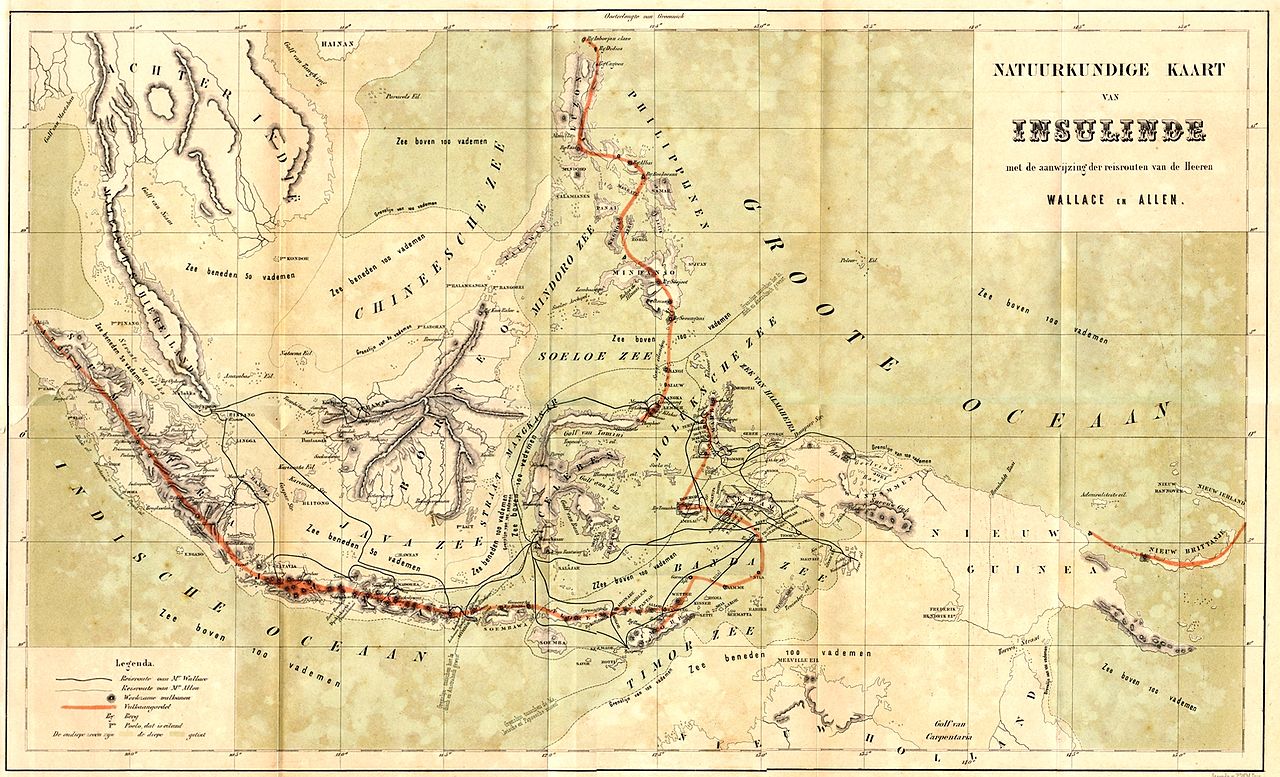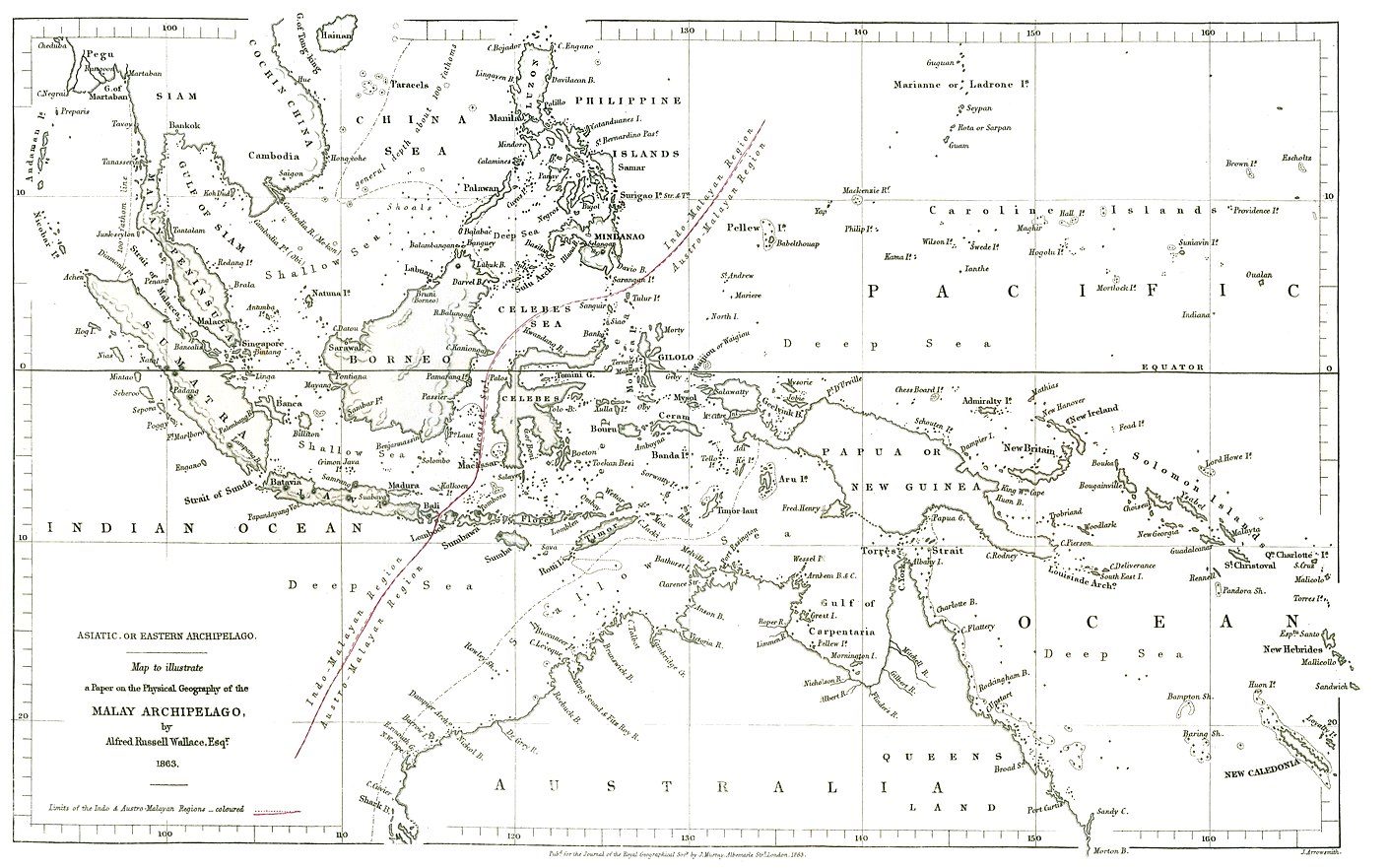Listen to Episode 54 on PodBean, Spotify, YouTube, or that other place you get podcasts … you know the one!
Darwin Day has come around again (February 12th), and bio-nerds around the world are celebrating science and natural history! Last year, we devoted an episode to Charles Darwin himself, and this year we’re joined again by Dr. Sarah Bray of the podcast Discovering Darwin. But this time, we’re highlighting the other guy, the young naturalist who arrived at the same evolutionary hypothesis as Darwin, and who shared the spotlight of discovery for a while. This episode, we’re talking about the fascinating and often overlooked Alfred Russell Wallace.
In the news
An incredible experiment reveals mouse evolution right before our eyes.
Triassic reptiles are weird. This one is strangely like a platypus.
A new early archosaur from Antarctica, right after the Permian extinction.
Amoeba fossils from the soils of the earliest terrestrial ecosystems.
The Origins of a Theory
Darwin’s story is very famous. He got on a boat and traveled around the world collecting notes and knowledge about life. He spent several decades meticulously putting it all together, waiting for the right moment to unleash his ideas onto the world. When he finally did, publishing On the Origin of Species in 1859, he changed our understanding of biology forever.
But lesser known is the fact that Darwin was spurred into action by a letter he received in 1858 from a younger man who had arrived at very much the same great revolutionary idea.
The credit for the discovery of “descent with modification by means of natural selection” belongs to Darwin, and also to Wallace.

Alfred Russell Wallace
Like Darwin, Wallace was born in England, was interested in bug collecting, and did his best and most famous work while traveling through the tropical parts of the world.
Unlike Darwin, Wallace was not wealthy. His journeys to South America and southeast Asia weren’t just exploratory, they were business. He collected animals to study them, but also to sell his specimens.

Wallace’s most famous trip took him across the islands of southeast Asia from the 1850s into the 1860s. There, he named tons of new species, arrived at incredible insights about how species differed across the islands of the region, and came up with the following wonderful realization:
“Every species has come into existence coincident both in space and time with a pre-existing closely allied species.”
And in 1858, in the midst of terrible illness, Wallace wrote down his ideas on what would eventually become natural selection, and sent it to Darwin.
The letter shocked Darwin enough to write to his friend Charles Lyell about it. Darwin said this:
“I never saw a more striking coincidence. if Wallace had my M.S. sketch written out in 1842 he could not have made a better short abstract! Even his terms now stand as Heads of my Chapters.”
The two men’s ideas were presented to the Linnean Society that year.

More info
Wallace’s life was full of science and adventure. He’s most famous for being the less famous evolution guy, but his contributions to biology were many, and his life was fascinating.
The Alfred Russell Wallace Website is exactly what it sounds like, and full of great info.
Find more about Wallace’s relationship with Darwin at the Darwin Correspondence Project.
The biography that helped Sarah prepare for our podcast discussion:
Raby, P. (2001). Alfred Russel Wallace, A Life. Princeton NJ: Princeton University Press; London: Chatto & Windus. 340 pp.
Thanks as always to our listeners, our Patrons, our subject-suggesters, and this time a HUGE thanks to Dr. Sarah Bray for joining us again!
Happy Darwin Day!
—
If you enjoyed this topic and want more like it, check out these related episodes:
- Episode 28 – Charles Darwin
- Episode 56 – Evolution of Evolutionary Theory
- Episode 10 – The Tree of Life
- Episode 98 – Species and Speciation
We also invite you to follow us on Twitter, Facebook, or Instagram, buy merch at our Zazzle store, join our Discord server, or consider supporting us with a one-time PayPal donation or on Patreon to get bonus recordings and other goodies!
Please feel free to contact us with comments, questions, or topic suggestions, and to rate and review us on iTunes!
While Prof Bray’s knowledge of biology, Wallace, and Darwin is very impressive, she’s fallen afoul of the bizarre nature of the pronunciation of English place names.
“Leicester” is pronounced like “lester” and “Hertfordshire” is pronounced more like Hartford-shur
LikeLike
Ah, those befuddling English names! Thanks for clarifying!
LikeLike